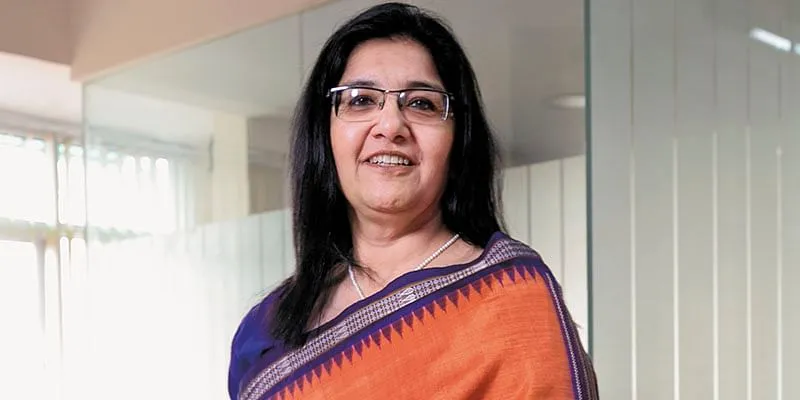Founders must focus on surviving coronavirus to fight another day: Padmaja Ruparel of IAN
In a conversation with YourStory, Padmaja Ruparel, Co-founder and President of IAN, talks about how the coronavirus pandemic has affected founders and investors, the long-term impact, and what early-stage startups should do during these unprecedented times.
The impact of coronavirus is being seen globally as the world economy seems to have come to a standstill. Companies and individuals across the globe have moved to a “wait-and-watch-and survive” mode. Needless to say, this has impacted startups and fund-raising activity.
Most VCs have one simple advice: fundraising outcomes are not only dependent on your business and its metrics, but also on the macro environment. And the impact of this is seen across startups across stages.
Padmaja Ruparel, Co-founder and President of Indian Angel Network (IAN), one of the largest group of business angels comprising successful entrepreneurs and dynamic CEOs from India and overseas, talks to YourStory about the impact of coronavirus on startups and investors.
In late 2018, the IAN network also founded a SEBI-registered VC fund of Rs 375 crore. Together with IAN Angels and IAN Fund, the platform is one of the single largest platforms for seed and early-stage startups, where entrepreneurs can raise from Rs 25 lakh to Rs 50 crore.
In 2019, some of the IAN’s core investments included Nocca Robotics, Mobycy, Monitra Healthcare, and Chakra Innovation. The same year, the team had over 11 exits, including , , , , and .

Padmaja Ruparel, Co-founder and Co-chair, Indian Angel Network
Edited excerpts of the interview:
YourStory (YS): How has the coronavirus pandemic impacted IAN and its investors?
Padmaja Ruparel (PR): Never before, in living history, has the world seen a health disaster of this scale. In these times, IAN, as a key stakeholder of the Indian startup ecosystem, is playing a supportive role. While all safety norms are conformed to, it is today trying to ensure business as usual by helping startups to raise funds.
IAN has completely moved its operations online, including weekly pitch sessions, deep dives, diligences, mentoring, and chatroom sessions, for portfolio companies and other startups.
However, COVID-19 has had its impact on the ecosystem – companies are struggling with lockdown, some have dropped to zero revenues, on-ground operations are impacted, etc. Investors, on the other hand, are grappling with their own business issues and cash conservation is key. Further public markets have further impacted liquidity.
YS: How has it impacted your portfolio?
PR: Portfolio companies, like other startups, have been impacted. Revenues are severely impacted; they have to downsize operations and are just struggling to stay afloat to see the other end of the COVID-19 tunnel.
It has forced companies to rethink strategies and what they could differently as the world is undergoing a paradigm shift. Companies are using the lockdown to re-strategise; many have right-shifted their online vertical and left-shifted their offline, allowing them to scale even faster.
Others have seen a spike in their revenues as their proposition is actually helping assuage problems. So, while business continuity and risk management are at top of our minds, our companies have clinically thought through their competencies, and are leveraging the opportunities that this pandemic and its fallouts have created.
As startups are nimble and swift-footed, we have seen one of our companies quickly innovate to build a low-cost ventilator, which is the current national need.
So, entrepreneurs are opportunistic and, ultimately, founders are leading companies to convert crises to their advantage.
YS: What are the current investor sentiments and will that change?
PR: The pandemic has put all major economic activities under lockdown, and public markets have fallen. Liquidity is extremely tight and, therefore, investors are less likely to invest in high-risk high reward assets.
They would obviously conserve cash and it is natural that investor sentiment will be muted at this time.
However, I must add that investors are still happy to explore investing in startups focused on sectors that will become critical due to COVID-19 – healthcare, cybersecurity, online plays, logistics, etc.
YS: What steps should early-stage startups take during these unprecedented times?
PR: At this point, the only thing startups should focus on is staying afloat and come out standing at the other end. This can only be done by a single-minded focus on “cash is king”.
Question every expense, right-shift everything that is not imperative, re-negotiate agreements with suppliers, take a hard look at team costs, chase every single receivable, and do not sell without advances. In times like this, the single focus is to keep the business afloat at all costs, which may need founders to be very clinical. Basically, live this through to fight another day.
This is what IAN is sharing with its companies. Very experienced investors, who have built garage to IPO companies, are reiterating this. The best use of the lockdown is to rethink and re-strategise, and prepare the business to re-engage with the market when things open up.
YS: What are the key challenges for startups looking for growth capital? What advice would you give them?
PR: Startups in the growth stage have been most affected as these discussions have been ongoing for several months and transactions have fallen through. Again, this is because investors are re-strategising their deployment and will, naturally, allocate a larger amount than planned for supporting their own portfolio companies.
This is because fund-raising is likely to slow down overall. Overseas investments will also lag as this is a global pandemic, which has resulted in a world-wide slowdown.
YS: What are the long-term impacts you foresee?
PR: The IMF has declared a recession, and the world is now into a slowdown. The liquidity crunch is already visible; job losses are starting, and we will see reduced demand and manufacturing.
Startups will find it tough to raise money for the next couple of years. This will be difficult, but companies with strong foundations – with top line and bottom line - will emerge.
We should see capital-efficient companies as cashflows will be paramount. These will create compelling investment opportunities for investors. Such cycles are not uncommon. We saw it in 2000 and in 2008. The world bounced back; it will do so again.
But, we will see a new wave of innovative companies with a new focus and zeal emerging. Tough times ahead will bring tough founders into the game, and lead to high-quality investment opportunities
YS: What advice would you give founders?
PR: We would like to assure them that the present situation may look like the end of the world, but it isn’t so. If history is any evidence, the world has undergone similar, even worse, crises in the past, and has always got back up on its feet.
Business leaders need to brave through this storm so that they can come out of it smarter, stronger, and healthier. For this, founders have the best resource at their disposal: their instinct for innovation. They should treat this crisis as their domain and endeavour to own it.
- “Rethink” the business strategy: What worked earlier may not work now. For example, online is dominant rather than offline.
- Think whether the proposition is “need to have” in today’s new world or is a “nice to have”.
- Think “top line and bottom line”: building a sustainable, profitable business is imperative.
- Cash is king: Conserve cash in every way, question every expense, renegotiate existing contracts, focus on receivables, etc.
- “Team” is strength: motivating and bonding the team is imperative. Share the situation so that the team can support and help. Teams that are stressed are ultimately teams of steel. And finally, optimism and hope are critical.
Startups that survive these tough times are the ones that will succeed in the long run.
Edited by Saheli Sen Gupta










